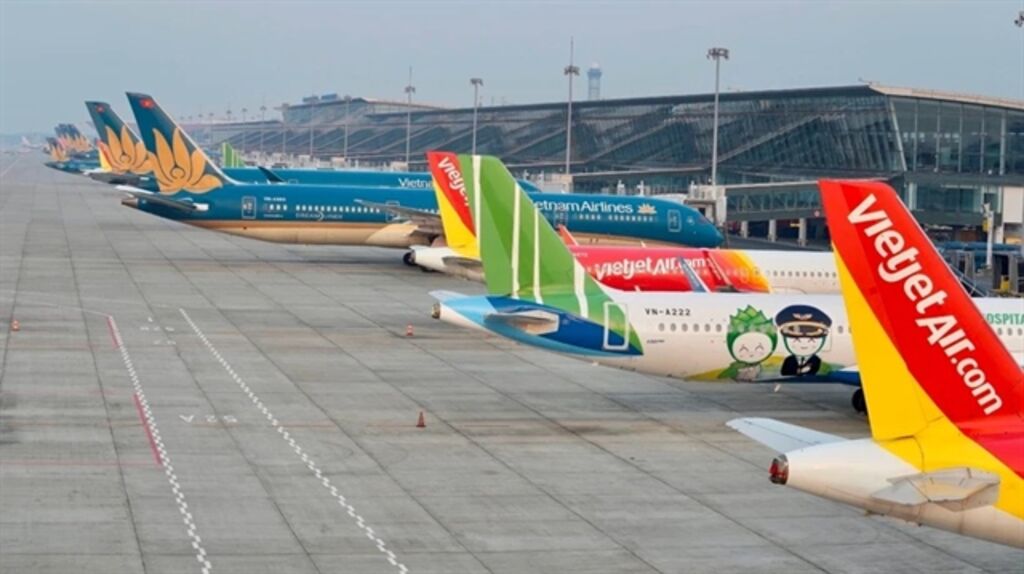 |
| Aircraft at Noi Bai Airport, Hanoi__Photo: VNA |
The Ministry of Construction has unveiled the draft (revised) Civil Aviation Law of Vietnam (the draft), proposing new regulations to reshape the framework for airfare management.
Notable proposed new provisions cover a requirement for airlines to adopt “all-in” pricing, i.e., publicly disclosing the total ticket price upfront, inclusive of taxes, airport fees, baggage and in-flight service surcharges. The draft also provides a real-time price monitoring system with alert thresholds, and a tiered system of oversight in which the Government would retain the authority to impose price caps when necessary, while the Ministry of Finance would flexibly regulate the rest under the Law on Prices.
Most experts agree that these changes could resolve long-standing issues in Vietnam’s aviation market, including opaque pricing, hidden surcharges that mislead consumers, and insufficient infrastructure competition. The new system is expected not only to help passengers compare fares more easily and make their choices but also to provide authorities with tools to intervene when prices surge abnormally.
To ensure these reforms are effectively implemented, the drafting committee is urged to continue gathering opinions of related ministries, agencies and businesses. Among the priorities is embedding the principle of “fare transparency” into the law, requiring airlines to periodically disclose breakdowns of taxes, fees and surcharges. Another recommendation is to develop a publicly accessible airfare database, managed either by the Ministry of Finance or an independent intermediary agency, allowing both consumers and carriers to benchmark ticket prices.
Regarding taxes and fees, experts from Rong Viet Securities Company believe that abolishing the rigid price ceiling framework would allow airlines to set fares within market ranges, especially on routes served by multiple carriers. However, they cautioned that a flexible fare system would only succeed if accompanied by measures to reduce the burden of infrastructure costs and operating fees, especially at major airports.
This means that uncontrollable expenses such as exclusive ground service charges and fuel import duties should be further reviewed. Cutting these indirect costs, combined with more efficient operations, faster aircraft turnaround and fleet restructuring, would help airlines lower fares in practice, not just in theory.- (VLLF)









